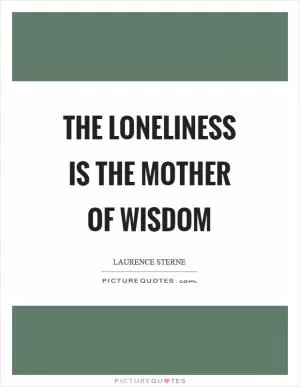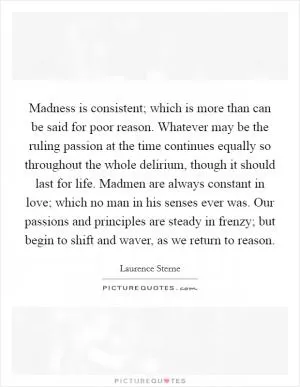Before an affliction is digested, consolation ever comes too soon; and after it is digested, it comes too late

Before an affliction is digested, consolation ever comes too soon; and after it is digested, it comes too late
In the context of Laurence Sterne, the quote "Before an affliction is digested, consolation ever comes too soon; and after it is digested, it comes too late" holds a profound significance. Sterne, a renowned English novelist and clergyman, is best known for his novel "The Life and Opinions of Tristram Shandy, Gentleman", which is characterized by its experimental narrative style and exploration of human nature.Sterne's works often delve into the complexities of human emotions and experiences, and this quote reflects his deep understanding of the human condition. In many of his writings, Sterne explores the themes of suffering, loss, and the search for meaning in the face of adversity. The idea that consolation can come too soon or too late in the midst of affliction resonates with Sterne's exploration of the ways in which individuals cope with hardship and find solace in the face of life's challenges.
One of Sterne's most famous characters, Tristram Shandy, is a prime example of this theme. Throughout the novel, Tristram grapples with a series of misfortunes and setbacks, from his difficult birth to the various trials and tribulations he faces throughout his life. In the midst of these afflictions, Tristram often finds himself seeking comfort and consolation from those around him, only to discover that the timing of such solace is never quite right.
Sterne's exploration of the timing of consolation in the face of affliction speaks to the universal experience of suffering and the ways in which individuals navigate the complexities of grief and loss. The quote suggests that the process of digesting an affliction is a deeply personal and often unpredictable journey, and that the timing of consolation can have a profound impact on one's ability to heal and move forward.
Overall, the quote "Before an affliction is digested, consolation ever comes too soon; and after it is digested, it comes too late" encapsulates Sterne's nuanced understanding of human emotions and experiences, and serves as a poignant reminder of the ways in which individuals navigate the complexities of suffering and find solace in the face of adversity.












 Friendship Quotes
Friendship Quotes Love Quotes
Love Quotes Life Quotes
Life Quotes Funny Quotes
Funny Quotes Motivational Quotes
Motivational Quotes Inspirational Quotes
Inspirational Quotes